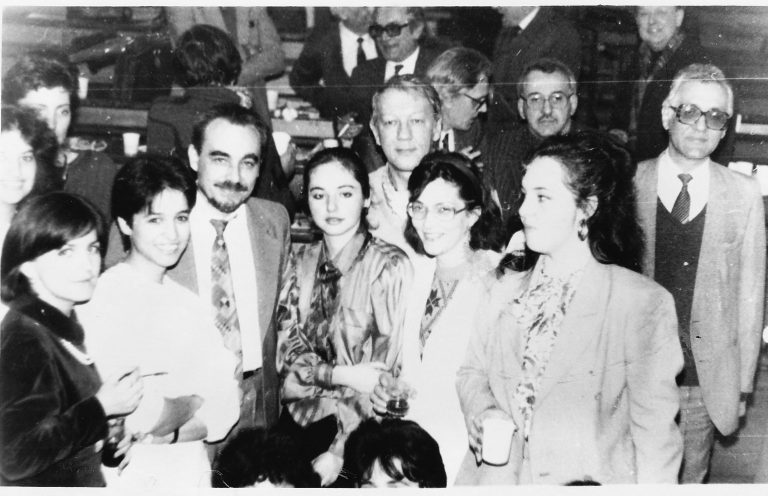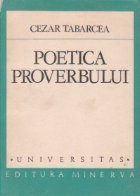
This is a story like no other, a story like all that fascinates us and we do not forget. I found such a story at the Faculty of Literature, at 5 Edgar Keene Street. In a drawer forgotten by time and people. Don’t forget to always check the boxes! A story that changed a generation was found. Kristina Bohdan, dean of literature, says this. When will he tell us? Today, today, marks the 160th anniversary of the founding of the Faculty and the 30th anniversary of the founding of the first Faculty of Communication and Public Relations in Romania.
Come to the holiday (the program is here) and ask Christina about the letter, about this miracle of finding and restoring a simple piece of paper. A simple sheet like no other. Ask her what the paper was like, what the writing was like, what color it was, was it coffee stained, did it smell like perfume, was the paper de dictando? How Christina ignored a simple piece of paper. How could Tabarsey forget her there? But she, Christina, how does she forget, how does she remember, how does she now write notes, now that she has discovered that a piece of paper, so small and forgotten, mortal, can last?
And Khrystyna Bohdan tells:
“A few years ago, I became associate dean of the Faculty of Literature and began my mandate with the most natural of all possible gestures: taking possession of the space where I was going to spend my administrative hours. In a long room with tables and chairs, lined with filing cabinets, the vice dean’s office was located for a long time, remembering that this room used to be the office of the director of the communication and public relations department. , Professor Caesar Tabarcha. The operation lasted about 3 days, during which, amid clouds of dust and piles of papers taken to the trash, I often smiled when I discovered sheets filled with notes from dear teachers, various notes able to reproduce the physiognomy of the times when agreements often ended with a simple handshake and less supporting documentation.

Tabarcha is a guy without a beard and without glasses
Among the pages that caught my attention at the time were also some entitled “Declaration of Principles,” on which I recognized the neat writing of Professor Tabarchi. I reproduce the excerpts below from this founding act of a new profession in Romania after December.
For those who lived through the communist period, the introduction will pull back the curtain of time and bring back to memory figures they would probably like to forget forever:
“Until the 1990s, he was a “comrade of protocol.” A “protocol comrade” is always “in a suit and tie”, who, when there were no delegates, and especially “outsiders”, did nothing and only reported to the “comrade” director, but it was clear from many that he was rather a “comrade” reported to “him.” The “comrade” from the protocol was a graduate of the faculty and even had “some post-graduate studies” about who did not explain too much when asked, but let them understand… After the “80th comrade” with the protocol” he he also knew a foreign language, was “out there”, told a story about how abandoned neighborhoods in different capitals look like, besides, he was a “boy of life”, always ready to chat with colleagues and casually moving from one guest to another, over cocktails in a familiar manner stroked even gentlemen. on their shoulders from abroad, promising them unforgettable moments in Poiana Brasov.
I saw the comrade “with the protocol” again in the spring of 1990. Now he was called “Public Relations Manager”,
but he had dark circles under his eyes, wore a sweater when he didn’t have “delegates,” and was disappointed that not only the director, but even his colleagues, even someone who had worked in the records department for years, said that , who is “outside” without asking for permission. Then I realized that the time of the “protocol comrade” was over and another one was needed. Others noticed, so in a short time there appeared young and beautiful girls who knew two foreign languages, but whose role was reduced to serving coffee and translating letters, although, in principle, they were considered a “PR” operation. Thanks to the International Visitors Program, I had the unique opportunity to not only learn, but also see what PR really is in 1993 in the country where the practice was born. On the way back, over the Atlantic, I suddenly asked myself: “Couldn’t it be here, too?”
I also asked Professor Paul Cornea, then dean of the literature department. And we both set out to substantiate the positive answer… It so happened that in the fall of 1993, the first competition for admission to the Faculty of Communication and Public Relations of the Faculty of Literature of the University of Bucharest took place. took place (…) The Romanian language allows for unfortunate confusion: “PR” (“You go to the first floor, room 18”) and public relations. All the more, we had to struggle with it and still have to. PR means creating, promoting and maintaining an image, it means winning the goodwill of the public by honest means, through effective communication. PR is fantasy and professionalism, dynamism and adaptation to the new. In fact, the main goal of the Department of Communication and Public Relations at the Faculty of Letters of the University of Bucharest is to make the transition from a “comrade with protocol” to a true public relations specialist.

The bitter humor of Professor César Tabarchi, from the lines in which he sketches the evolution of the physiognomy of this key figure of the communist period – the “comrade of protocol” – seems to have been nourished by sketches with Toma Karaghiu.
After the technical revolution and almost three decades later, the figure of the publicist is inscribed in different coordinates than that of the long-mentioned comrade. The transition was made with the stumbling blocks and difficulties inherent in difficult times when society as a whole was searching for the right paths to follow. The (unofficial) birth certificate of the first communication and public relations training program in the Romanian academic world speaks simultaneously of the disappearance of one profession and the emergence of another. In fact, it’s about two models of creating, maintaining and promoting a certain image: Soviet and American.” Cristina Bohdan also found a program proposal sent by Antoinette Tenesescu to Cesar Tabarcea. What madness these two have created! They dreamed of studying Aristotle’s “Nicomachean Ethics,” Plato’s “Lysis,” Machiavelli’s “Principles,” Balthazar Gracian’s “Hand Oracle and the Art of Prudence,” and even “Homo Sovieticus.”
The man who forgot the ordinary piece of paper at the bottom of the box, César Tabarcha, died on a Sunday morning in 2004. His son Caesar also went to Zeus, strangely, a few years later. The Internet does not give father and son a chance. It cannot be found. Caesar created the world. Caesar was nourished by classical and modern Greek philology. What a story to forget. The Son could no longer say anything about the Father. Here is a true story of how the tradition is passed down. Khrystyna Bohdan could call two or three garbage collectors, load the product and put it in the trash. He sat in Caesar’s chair and picked out each piece of paper. He spent time in the trifles of a world that no longer exists.
The story Cezar Tabarcea mms was first published in Fiction.
Have you ever found such life-changing little things? If you also know such immortal events, write to [email protected].
Source: Hot News
Ashley Bailey is a talented author and journalist known for her writing on trending topics. Currently working at 247 news reel, she brings readers fresh perspectives on current issues. With her well-researched and thought-provoking articles, she captures the zeitgeist and stays ahead of the latest trends. Ashley’s writing is a must-read for anyone interested in staying up-to-date with the latest developments.